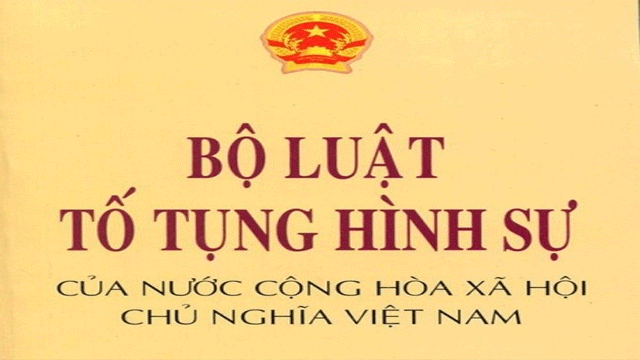After initiating the suspects, competent authorities in Vietnam may decide to apply one of the deterrent measures against the suspects in order to avoid their escape, continued crime, etc. One of the deterrent measures is residential confinement in Vietnam. The following are some provisions on residential confinement in criminal proceedings.

Regulations on Residential confinement in criminal proceedings in Vietnam (Illustration)
1. What is the residential confinement in Vietnam?
Residential confinement is a preventive measure in Vietnam that may apply to suspects and defendants having definite place of residence and records assuring their presence as per subpoena by investigation authorities, procuracies or Courts.
2. Obligations of the suspects or defendants when they are residential confinement in Vietnam
Suspects and defendants confined to a specific place of residence in Vietnam must guarantee their execution of these duties in writing:
- Not to be absent from the specified place of resident without the permission by the authority issuing residential confinement orders;
- Be present as per a subpoena, unless force majeure or objective obstacles occur;
- Not to abscond or continue criminal acts;
- Not to commit acts of bribing, coercing or inciting other individuals to give false statements or documents, destroying or forging case evidences, documents and item, shifting property related to the case away, threatening, repressing or avenging witness testifiers, crime victims, denouncers and their kin.
3. What are the penalties for the suspects or defendants who violate their obligations during the time of residential confinement in Vietnam?
During the time of being banned from leaving the residences in Vietnam, the suspects or defendants must perform the obligations in section (2). In case the suspects or defendants violate the commitment obligations prescribed, they shall be held in temporary detention.
4. Time limit for residential confinement in Vietnam
The length of time of residential confinement in Vietnam shall not exceed the time of investigation, prosecution or adjudication as per this Law. The length of time of residential confinement against persons sentenced to imprisonment shall not exceed the time from conviction to enforcement of incarceration sentence.
5. Competence to manage and follow the suspects or defendants during the time of residential confinement in Vietnam
- The individuals issuing residential confinement orders in Vietnam must inform local authorities in the commune, ward or town where suspects or defendants reside, or military units that manage them of the enforcement of the measure. Moreover, suspects and defendants shall be transferred to such local authorities or military units to oversee and supervise them.
Thus, the competence to manage and monitor the accused or defendants during the period of prohibition from leaving their residences lies with the administrations of communes, wards, townships or army units in Vietnam that are managing the accused or defendants.
- If suspects and defendants ought to temporarily leave the specified place of residence due to force majeure or objective obstacles, they must obtain permission from local authorities in the commune, ward and town where they reside, or military units that manage them. Permission must also be granted by individuals issuing residential confinement orders.
- If suspects and defendants violate duties guaranteed, local authorities near their place of residence or military units managing them must report to the authority issuing residential confinement orders for intra vires measures.
(Article 123 of the Criminal Procedure Code 2015)
Diem My
- Key word:
- Residential confinement in Vietnam
 Article table of contents
Article table of contents





.Medium.png)
.Medium.png)
.Medium.png)
.Medium.png)
